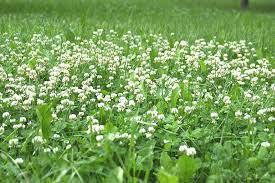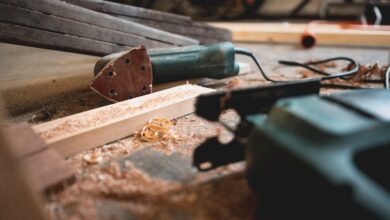Clover Lawns Pros and Cons: What You Need To Know

Clover has been marketed as a miracle of environmentalism and natural beauty. But is this really the case? What are Clover Lawns Pros and Cons? Let’s find out.
Clover Lawns Pros and Cons
When it comes to choosing the right lawn care service, there are a lot of options to consider. However, many people don’t realize that clover lawns are also an option. Here are some pros and cons of using clover lawns:
Pros:
-Theyrequire less water than other types of lawns.
-They provide a nice, soft texture.
-They’re good for gardens that get a lot of sun exposure.
-They’re less maintenance than other types of lawns.
-They look nice and natural.
Cons:
If you’re thinking about installing a clover lawn, there are a few things you need to know before making your decision. Here are the pros and cons of this popular lawn care option:
Clover lawns are becoming increasingly popular as people search for environmentally friendly options. They require less water than traditional lawns, and they’re great for areas that receive a lot of rainfall or snowfall. However, clover lawns do have their share of drawbacks. First, they can be difficult to maintain because they need frequent mowing and fertilizing. Second, they tend to be more susceptible to weeds and pests than traditional lawns. Finally, clover lawns don’t typically last as long as other types of lawns.
Types of Clovers
There are many different types of clovers, each with its own benefits and drawbacks. Here’s a look at the most common types:
Blue Clover: This type of clover is considered a hardy perennial and can grow up to 6 feet tall. It’s tolerant of drought and has a long blooming season, which makes it a great choice for areas that don’t get much rainfall. However, blue clover can be difficult to manage due to its heavy seed production.
Russian Clover: This type of clover is also considered a hardy perennial, but it grows more slowly than blue clover. It also has shorter blooming periods and is less tolerant of drought. However, Russian Clover is noted for its beautiful purple flowers and can be used in floral designs or as part of natural landscaping.
Perennial Ryegrass: This type of grass is an annual plant that grows quickly and forms nice green lawns. It tolerates low levels of fertilizer and water but may require reseeding after being disturbed or grown in dense patches. Perennial Ryegrass does not flower, so it’s not as popular as other types of grasses when looking for a lawn that will feature colorful blooms throughout the year.
What You Need To Know About Clover
Clover lawns are a popular choice for homeowners looking to add some extra greenery to their yards, but they come with their own set of pros and cons. Here are five things you need to know about clover lawns before deciding if they’re the right choice for you:
1. Clover is a low-maintenance grass species that is best suited for areas where there is little or no abuse from foot traffic or other animals.
2. Because clover is a fast-growing grass, it can quickly fill in any gaps in your lawn coverage, so be prepared to reseed occasionally if necessary.
3. While clover does well in dry climates, it does not fare as well in wet ones, so be sure to check the weather forecast before planting it in your yard.
4. Clovers are susceptible to nematodes and other pests, so keep an eye out for them while growing your clover lawn and take appropriate action if needed.
5. Finally, clover lawns are not always as green as other types of grasses, so be prepared to mow them regularly if you want a uniform look throughout your yard.
When it comes to choosing a lawn care service, one of the most important factors to consider is the type of lawn you have. Clover lawns are a popular choice because they are easy to maintain and require few supplies. However, there are some things you should know about clover lawns before choosing them as your go-to landscaping solution.
First and foremost, clover lawns are not drought-tolerant. If you live in an area that experiences dry spells, clover may not be the best option for you. Additionally, clover does not do well in high traffic areas or near walkways. This is because clover blades are sharp and can easily damage footwear or other objects.
Another thing to keep in mind when choosing a clover lawn is that they require more frequent mowing than other types of yards. A typical mowing schedule for a clover lawn is once every two weeks, compared to once every four weeks for a grass yard. This means that you will need to budget more money each year for mowing services if you choose to have a clover lawn.
Conclusion
Clover lawns are a great option for people who want to maintain a clean, green lawn without having to do a lot of work. However, there are some things you need to know before you make the switch. Here are the pros and cons of using Clover lawns:
Pros:
-Clover lawns are easy to care for. All you have to do is apply an appropriate fertilizer and mow the grass regularly.
-They resist disease and pests better than other types of turfgrass.
-They require less water than traditional lawns, which conserves resources in your garden or yard.
-They look great year round, regardless of the weather conditions.
Cons:
If you’re considering installing clover lawns in your yard, it’s important to know what the pros and cons are before making a decision. Here’s a rundown of some of the key points to consider:
PRO: Clover lawns are low-maintenance, requiring only occasional mowing.
CON: They require regular fertilization.




